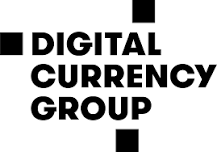Blockchain is expected to affect all aspects of our lives in the very future; however, finance is the most influenced so far. There are multiple well-known examples, such as cryptocurrencies or decentralized finance (DeFi).
Today, we introduce another rising application of blockchain: blockchain in venture capital.
Although this new financing form only makes up less than 1% of the global venture capital, almost all fintech companies agree that blockchain will become the mainstream soon.
Keep reading to find out what the blockchain in venture capital is and how it differs from traditional venture capital. Some practical examples are included!
What Is Blockchain in Venture Capital?

Small companies or startups usually use venture capital to raise funds for their operations. Accordingly, they prove that the companies have long-term potential for growth and encourage individual investors or financial institutions to invest their money, technical know-how, or managerial in exchange for equity in the companies.
Blockchain venture capitals, or Blockchain VCs for short, retain that idea.
Early-stage or small firms aim at fundraising from the community to develop new blockchain-based projects. In return, investors can get the cryptocurrencies of the firms and, more importantly, governance tokens to get a higher power to make decisions related to the operations and changes of the blockchain.
The benefits of blockchain in venture capital are promising:
- Be easy to start: Launching a blockchain is much easier than launching a new company, as you do not have to follow complicated legal requirements. Moreover, this type of venture mostly depends on technology to start rather than initial capital.
- Spread the word about new blockchains: In addition, digital blockchains can reach a wide range of people all over the world, normally via Facebook, Google, or Instagram, as long as people have the internet.
- Fund the venture capital quickly: The more chance a blockchain can reach its potential investors, the higher fundraising becomes in the end. Moreover, the government tokens granted to investors will be backed to the pools to streamline transactions within the chain.
Must check: How does blockchain work?
3+ Examples of Blockchain in Venture Capital
Blockchain ventures sound simple and promising, as above; however, you should be careful in finding trustworthy companies. Blockchain itself and blockchain in venture capital are still buzzwords, and investors are under high regulatory risks, technologies, or market volatility.
Here we recommend some dedicated blockchain-based firms for your reference.
Coinbase Ventures

- Founded in San Francisco, California, since 2018
- Size: More than 200 crypto projects
- Specialization: NFTs, Decentralized finance, developer tooling, metaverse technologies, etc.
Although Coinbase Ventures was founded in 2018, its parent company – Coinbase, has gone through a long run in the blockchain industry since 2012 and has even become one of the leading U.S gateways for crypto outsiders.
So far, the company is backed by a solid financial base of $15 million in a single venture fund, which allows Coinbase Ventures to build an impressive and robust portfolio with more than 200 crypto projects and make nearly 300 investments.
Digital Currency Group

- Founded in Manhattan, the U.S, since 2015
- Size: 5 subsidiaries, including Genesis Global Trading, CoinDesk, Foundry, Luno, and Grayscale Investments
- Specialization: Crypto trading, lending, asset custody platform, research, etc.
Digital Currency Group is promising that the company has various subsidiaries to cover different blockchain-related tasks, meaning it has unlimited potential to grow.
Genesis targets high-net-worth individuals and institutional clients who wish to do crypto lending, trading, or asset custody.
CoinDesk helps report daily blockchain news, publishes a bitcoin price index, and provides quarterly reports on the State of Bitcoin. The subsidiary also hosts a Consensus conference discussing blockchain technology and digital currencies.
Foundry, another subsidiary of Digital Currency Group, aims to set up and manage mining operations in Canada and the United States and provide financing, expertise, and digital mining equipment to startups.
Luno is the recent acquisition of a company with more than 5 million users. It is a cryptocurrency exchange having its headquarters in London.
Last but not least, Digital Currency Group also has Grayscale Investments, which offers private funds for accredited and institutional investors, plus publicly-traded products. This used to be the biggest digital-currency asset manager in the world in 2021. At that time, Grayscale Investments managed over $50 million in assets.
Binance Labs

- Founded in Hong Kong since 2018
- Size: 200+ blockchain projects across 25 countries
- Specialization: Investments in viable blockchain communities, entrepreneurs, and startups.
You might already be familiar with Binance – one of the largest cryptocurrency exchanges for the time being. Then, good to know its venture capital arm – Binance Labs.
Its goal is to assist, nurture, and invest in potential businesses laying the groundwork for the long-term growth of the blockchain sector. The team identifies early-stage Web3 startups through its incubator program and funds high-potential blockchain ideas.
Wrapping Up
This article briefly introduces blockchain in venture capital and some popular blockchain ventures worldwide. We will continue publishing more and more helpful articles on this topic.
Please stay tuned!
 4 minutes read
4 minutes read
